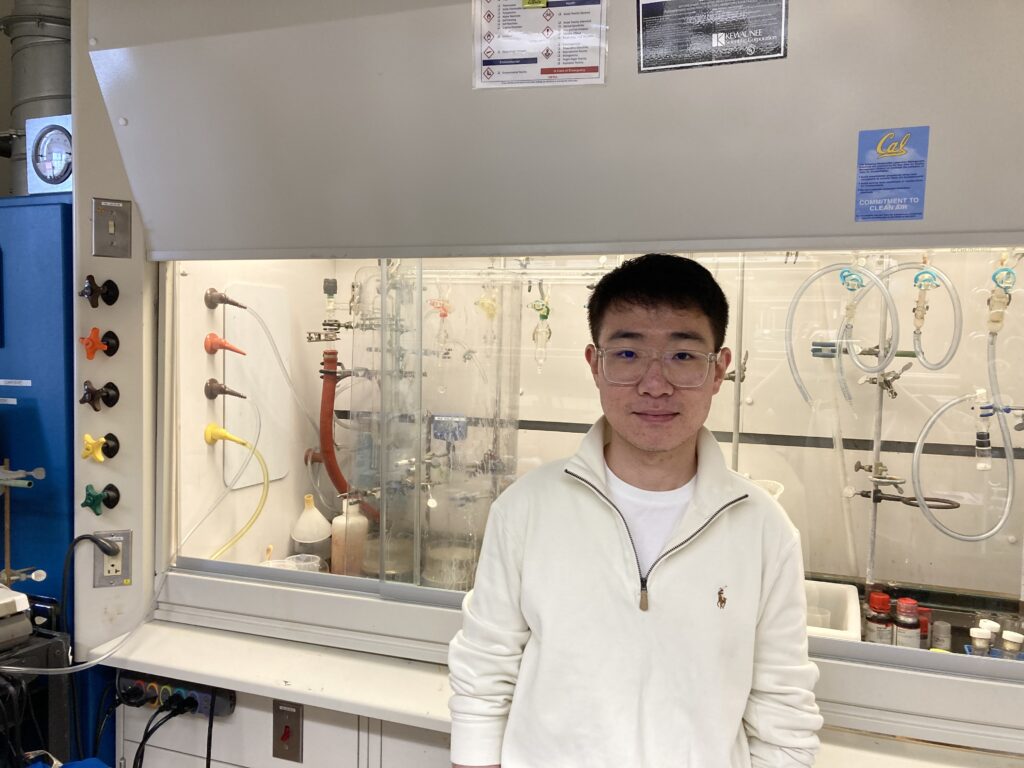Postdoc Cheng Yang of the Chris Chang Lab named Damon Runyon Fellow
Chang Lab Postdoctoral Associate Cheng Yang has been named a Damon Runyon Fellow by the Damon Runyon Cancer Research Foundation. He is among just 16 early-career scientists selected this fall to receive four years of independent funding to investigate cancer causes, mechanisms, and prevention.
Yang, an organic chemist, was awarded the prestigious fellowship for his project to develop methionine sulfoxide labeling approaches to profile and identify methionine sulfoxide sites in pancreatic cancer tumors.
Damon Runyon Fellowships go out to exceptional postdoctoral scientists conducting basic and translational cancer research in the labs of leading senior investigators.
“We are thrilled to be funding these innovative young scientists with the brilliance and passion to push boundaries and make breakthroughs,” said President and CEO of Damon Runyon Yung S. Lie. “Damon Runyon Fellows are the future leaders of their respective fields.”

Postdoctoral Associate Cheng Yang of the Chang Group.
“I am very fortunate to have been awarded this fellowship,” said Yang. “Chris and I have been talking about pursuing these exciting ideas for a while.
“The focal point of my research is the development of highly selective probes tailored for labeling specific amino acid residues,” he added. “Armed with these sophisticated chemical tools, my objective is to delve into the intricacies of biology, using them as instruments to unravel and understand complex biological processes.”
Oxidation of the amino acid methionine plays an important role in cellular regulation, and mutations at methionine sites are known to have pathogenic effects in cancer. However, direct assessment of methionine’s oxidation product, methionine sulfoxide, remains underexplored. Yang aims to develop methionine sulfoxide labeling approaches using light or electricity and, through these chemical tools, profile and identify methionine sulfoxide sites in pancreatic tumors and study their role in metastasis.
Yang joined the Chang Group in January of this year. “Chris’ groundbreaking work in the design and application of reaction-based chemical probes to biology and medicine aligns seamlessly with my research interests,” he said.
Yang did his doctoral work in organic chemistry at the University of Michigan, Ann Arbor, Michigan. He earned his undergraduate degree in chemistry at Nankai University in Tianjin, China.
Along with the other Fellows, Yang will be honored at the Damon Runyon Cancer Research Foundation Annual Fellows’ Retreat in Southbridge, Massachusetts later this month, where he’ll present a poster on his project.
